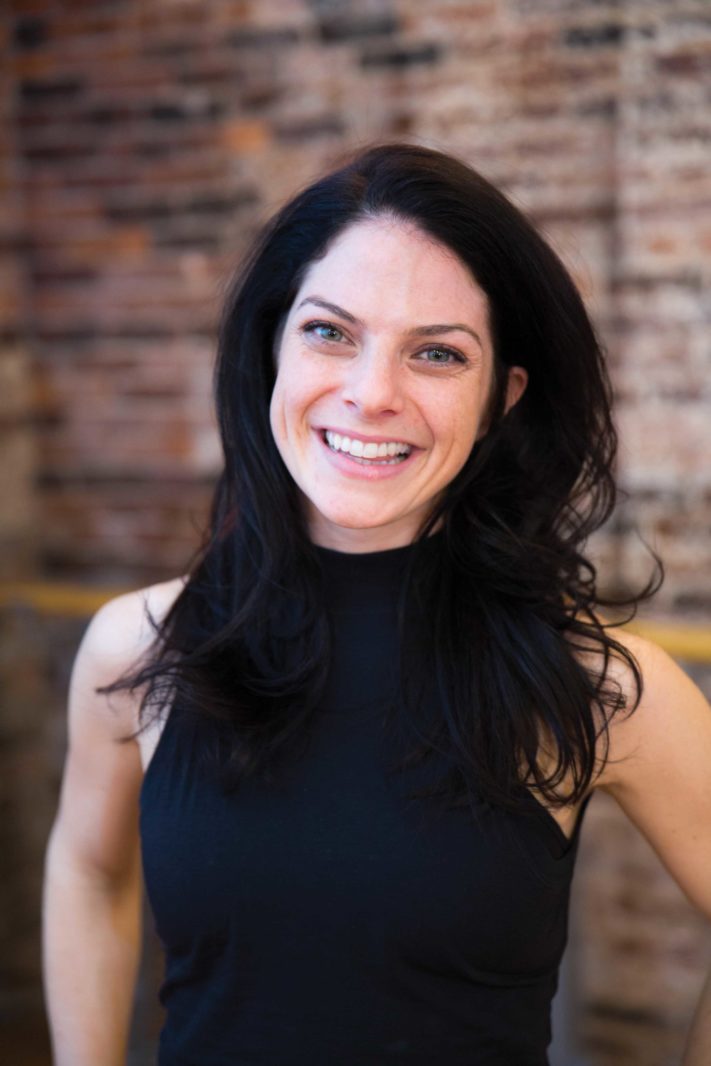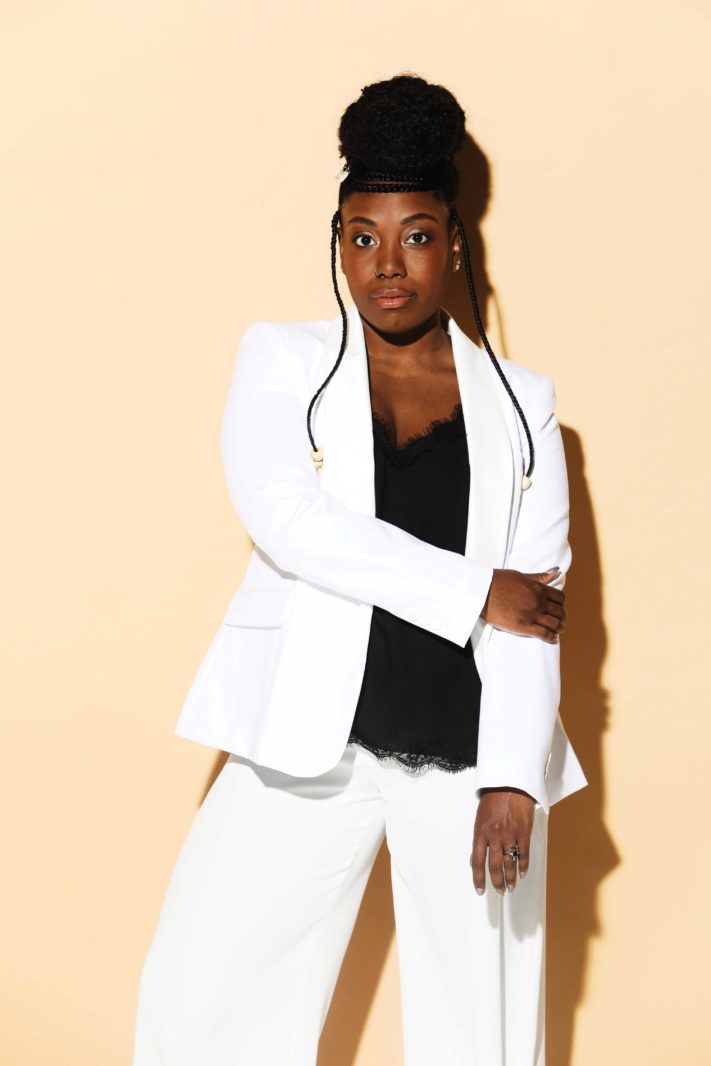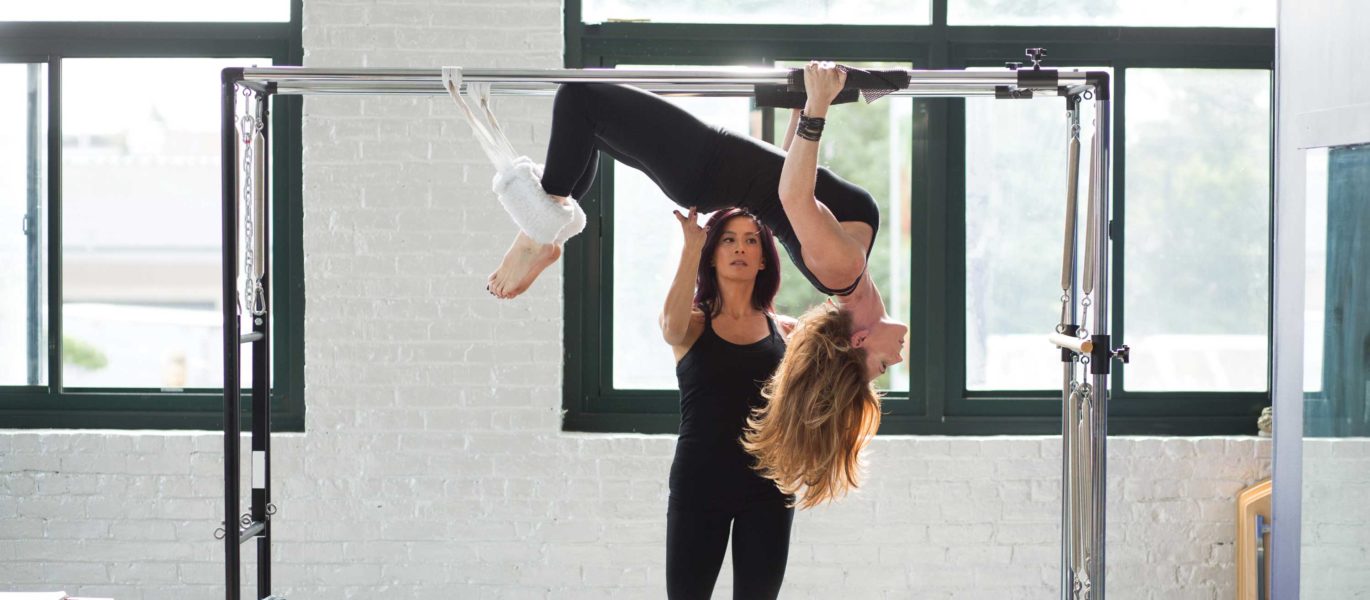Boutique fitness offers focused, specialized workouts in smaller studios — and their popularity is booming
From barre and bootcamp to strength training and spinning, exercise options seem endless. Sure, some people prefer to pump iron or pound the treadmill in big gyms, but others want something more than just a place to get fit.
Boutique fitness isn’t new. (Remember Jazzercise?) But there’s no doubt studio fitness classes are huge right now, as evidenced by the popularity of ClassPass and boutique chains such as SoulCycle and Orangetheory. The American College of Sport Medicine’s Health & Fitness Journal found group fitness was the number-two fitness trend for 2019. Also ranking in the top 10 were several popular boutique offerings, including HIIT and yoga.

CHRISTINE MAUS
Jamie Golden of Barre3 Boston
Just like clothing boutiques, studios are small and specialized, typically offering just one type of exercise in a group-class setting—and that’s part of their appeal. Jamie Golden, owner/instructor at Barre3 Boston, in the South End, says, “That’s all we do: We teach Barre3. And that is not a bad thing. That means we know what we’re doing, and we work hard at it to make sure we deliver it best to as many people as we can.”
Specialization means classes are taught by well-educated, focused instructors, explains CC Martin, co-owner/master trainer of C2 BODY Pilates studio. “Going to a boutique studio, you know you’re going to get [instructors] that have a strong background in anatomy, in biomechanics,” she says. “We’re not weekend warriors, we’re not weekend-trained. Our instructors have gone through an extensive training program.”
But, just like their clothing counterparts, boutique fitness often comes with a heftier price tag. A couple of classes can cost more than a monthly gym membership. For starters, Martin says, studio-quality equipment, like Pilates reformers, isn’t cheap — and neither are experienced teachers. It can be a struggle for studios to pay highly qualified instructors fairly while keeping pricing competitive.
While pricing can be one barrier to boutique fitness, another is the assumption the classes are just for women, Martin says. She’d like to see more men in her studio. “More often than not, men come in after a friend, physician or PT, or their fiancée or wife nudges them to go,” she says. “They’re resistant to coming, and then they come, and they realize, ‘This is nothing like what I thought it would be, and this is the hardest thing I’ve ever done, and I can see how it’s going to support all of the things I love to do.’”
Beyond just workout spots, boutique studios can be places to bond and connect. Creating a strong community is central to boutique fitness, studio owners say. They strive to create spaces where clients feel comfortable and supported — and want to come back.

DIANA LEVINE
Heather C. White of TRILLFIT
Heather C. White, owner of TRILLFIT in Mission Hill, struggled to find a studio that was a good fit for her, so she created her own — specifically, she says, a space for active millennials and people of color. “I was paying all this money for these memberships, and I wasn’t going back,” White recalls. “When I thought about it, I realized, oftentimes I was the only person of color in the room.”
TRILLFIT’s dance-cardio pop-up classes, followed by the opening of its studio, were instantly popular, and White knew she’d tapped into an important unmet need in the city.
Golden tries to foster community among clients outside of class by hosting wellness workshops, a book club and other events at Barre3. Her studio also provides childcare during workouts, which has helped moms — and also some dads — forge connections.
Getting a great workout and feeling a sense of camaraderie and belonging? It’s been a recipe for success for many Boston boutique studios.
“There’s been so many amazing friendships that have developed in the studio just from taking the same class and being in the neighborhood,” Martin says. “There are people who are coming seven days a week. They’re like, ‘I come here, I see my friends, I feel the energy, I feel supported, I feel seen, I feel taken care of.’”
White echoes this sentiment. “We have a core offering we feel like we’re great at, and we do those classes for a reason,” she says. “But we’ve made everything else accessible for this community so they feel, ‘I can go to TRILLFIT. This is a space for me. This is my home. I’m supported there, mind, body and soul.’”



 3 min read
3 min read

